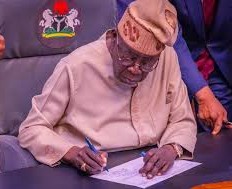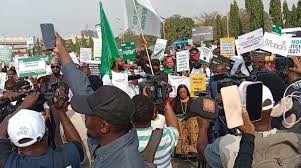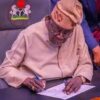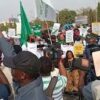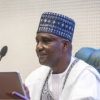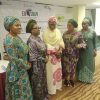Election rigging often begins with voter registration, so, unsurprisingly, the Continuous Voter Registration has sparked controversy just two weeks into the process. The controversies underscore the crucial role technology plays in elections. Previously, voter registration was used for rigging by adding fake names, but smart cards and BVAS prevented duplicate voting. However, manipulation has now
Election rigging often begins with voter registration, so, unsurprisingly, the Continuous Voter Registration has sparked controversy just two weeks into the process.
The controversies underscore the crucial role technology plays in elections. Previously, voter registration was used for rigging by adding fake names, but smart cards and BVAS prevented duplicate voting. However, manipulation has now shifted to manual processes at collation centres, where results have been altered and falsified.
Individuals who have been subject to manipulation frequently encounter significant challenges in obtaining justice through Tribunals and Courts, where various procedural technicalities may impede the resolution of legitimate cases.
Politicians commonly inflate voter numbers in their strongholds with the aid of coercive forces, anticipating election day malpractice. They altered results and encouraged opponents to pursue legal action, as seen in the Edo State off-cycle governorship election.
The INEC has a major task to purge the voters’ register. Otherwise, how can one explain having over 93 million voters on the INEC register, but rarely do 25 per cent of them show up on election day to cast their vote?
ADC Coalition Alleges Anomalies in the Continuous Voter Registration Exercise.
The coalition warns that Nigeria’s 2027 elections risk compromise unless INEC addresses concerns over recent, allegedly unrealistic voter registration figures.
According to National Publicity Secretary Mallam Bolaji Abdullahi, the party stated that figures from Osun State and the South-West zone contradict historical trends and demographics, casting doubt on the electoral process.
The Full Statement Reads:
“The African Democratic Congress (ADC) has viewed the first set of data released by the Independent National Electoral Commission (INEC) on new Continuous Voter registrations with great concern.
“According to INEC’s figures, Osun State alone recorded 393,269 pre-registrations in just one week. To put this in context, Osun added only 275,815 new voters between 2019 and 2023, a period of four years. In other words, Osun has now supposedly registered more people in seven days than it managed to do in an entire electoral cycle of four years.
“Even at its highest point of political mobilisation in 2022, Osun has never produced more than 823,124 votes cast in the Governorship Election. Now, by some miracle, nearly 20 per cent of all eligible adults in the state have rushed to register. This is not just unusual, it is statistically implausible.
“The anomalies become even more glaring when viewed in the context of the overall registration report. Across the six geopolitical zones, the South West alone accounts for 848,359 pre-registrations, an astonishing 67 per cent of the national total. By contrast, the entire South East recorded just 1,998 pre-registrations. To further illustrate, three states—Osun, Lagos, and Ogun—make up 54.2 per cent of all pre-registrations in Nigeria, while five states combined—Ebonyi, Imo, Enugu, Abia, and Adamawa—barely recorded 4,153, or 0.2 per cent, while the entire North East recorded just 6.1 per cent.
“These fantastic figures suggest either another technical “glitch” in INEC’s digital registration system, or a more troubling possibility of deliberate manipulation of data to lay the ground for a more sinister agenda in the coming elections. In either case, INEC has some explanations to give.
“We must be clear: the voter register is the foundation upon which the entire electoral process rests. If the foundation is compromised, it brings the integrity of the elections into question. Nigerians still remember the bitter consequences of flawed voter rolls and “technical glitches” in past elections. Our democracy cannot withstand another one.
“The ADC therefore calls on INEC to urgently conduct and publish a full forensic audit of the first-week pre-registration data, with a state-by-state breakdown of both physical and online registrations. INEC should also disclose the server logs, bandwidth distribution, and regional access reports for the registration portal during this period.
“We call on all opposition political parties to set aside rivalry and jointly demand clarity from INEC on these glaring anomalies. We urge election monitoring groups, fact-checking organisations, and legal advocacy bodies to independently interrogate these numbers and press for accountability.
“We also invite our partners in the international community—the United Nations, the African Union, ECOWAS, and Nigeria’s democratic allies—to take early interest in these developments, as the credibility of the 2027 elections begins with the integrity of this voter register.
“The credibility of our democracy cannot be left to chance. Silence in the face of these anomalies would amount to complicity. The ADC believes Nigerians deserve an explanation, and we will continue to insist that INEC provides one.
“History has shown that when questions about the voter register are left unanswered, the consequences go beyond politics; they touch on national stability itself. The time to act is now”. The coalition warns.
INEC Responds to ADC
The Independent National Electoral Commission (INEC) has addressed concerns raised by the African Democratic Congress (ADC), stating that the voter registration numbers in Osun State are within normal patterns.
In a short reaction, Mr Rotimi Oyekanmi, the Chief Press Secretary to the INEC Chairman, faulted claims by the ADC that figures released in its first-week report on continuous voter registration, CVR, were “statistically implausible”. The electoral umpire said Osun state recorded 393,269 pre-registrations in one week.
“Concerning Osun State, the pattern is similar to what occurred in June 2021 when the commission launched the online pre-registration for the first time,” the statement reads.
Abubakar Atiku Proposes Nine Areas of Reform to Improve the Electoral Process
The former Vice President, Abubakar Atiku, welcomed the enthusiasm of Nigerians in the ongoing voter registration. However, warned that “it is not just enough to demand that eligible voters register for their PVCs. It is pertinent that far-reaching electoral and judicial reforms are undertaken to ensure electoral integrity, strengthen public confidence, and promote judicial independence”.
In a statement on Thursday, Atiku noted that, “over time, the quality of our elections has continued to deteriorate, with voter turnout at an all-time low during the 2023 elections. Of the total 93.47 million registered voters, only 24.9 million persons voted in the last presidential and National Assembly elections. This represents a meagre 26.72 per cent voter turnout, the lowest since the return to democracy in 1999.
Alhaji Atiku submitted that action is needed to address declining trust in democratic processes. Issues like BVAS and electronic transmission must be resolved according to the constitution, not left solely to judges’ discretion. As Prof. Chidi Odinkalu notes in “The Selectorate,” judicial influence over elections has grown, sometimes shifting power from voters to a select group under legal pretence.
He proposed electoral and judicial reforms which would return the power to the people to choose their leaders and not a conclave of interested parties. He went ahead to suggest nine things to be done.
He said, “There should be an amendment in the 2022 Electoral Act, providing for: First, mandatory use of BVAS for accreditation of voters and upload of election results from all the polling units and collation centres across Nigeria without any provision for discretion to the Independent National Electoral Commission (@inecnigeria) for manual accreditation of voters.
“Second, mandatory electronic transmission of election results from the polling units to the iREV without any provision for discretion to the Independent National Electoral Commission for manual transmission of election results.
“Third, collation of results at the Ward Collation Centres based on the results already electronically transmitted to the iREV from the polling units, without any provision for manual collation of results at the Ward Collation Centres.
“Fourth, collation of results at the Local Government or Area Council Collation Centres based on the results already electronically transmitted to the iREV from the Ward Collation Centres, without any provision for manual collation of results at the Local Government or Area Council Centres.
“Fifth, collation of results at the State Collation Centres based on the results already electronically transmitted to the iREV from the Local Government Collation Centres without any provision for manual collation of results at the State Collation Centre.
“Sixth, collation of results at the National Collation Centre based on the results already electronically transmitted to the iREV from the State Collation Centres, without any provision for manual collation of results at the National Collation Centre.
“Seventh, at no point shall manual accreditation of voters, transmission of results, or collation of results be allowed.
“Eight, the position of the Chairman of INEC, Resident Electoral Commissioners, and the National Electoral Commissioners shall be subject to a democratic voting by the people.
“Ninth, INEC to prove substantial compliance with the provisions of the Electoral Act and the Constitution in the conduct of the election in an election petition and not the petitioner, he said.
The INEC has to rise to the occasion by restoring trust in the electoral process, where the votes will count. INEC must purge its voters’ register, which may not reflect the actual number of adults registered to vote.


